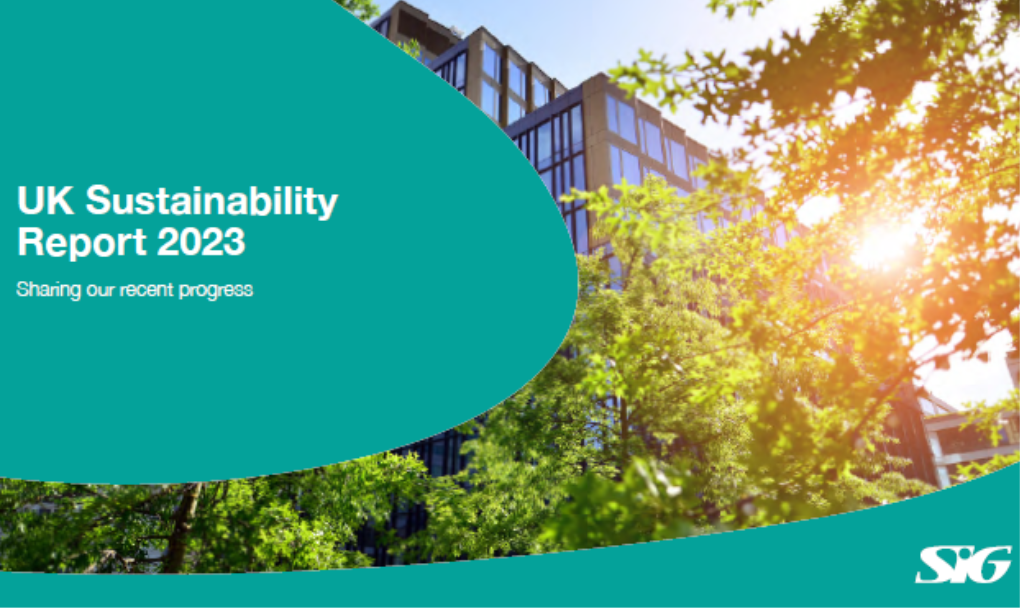In its new report on 2022 and 2023 sustainability performance, SIG focuses for the first time on its Scope 3 emissions, outlining how it will use its position within the industry to support measures to reduce these, while simultaneously driving down emissions from its own business operations.
The overall goal for SIG is to be a zero carbon business by 2035. The starting point has been Scope 1 and 2 emissions over which the organisation has direct control and the figures show an impressive 19% reduction compared to the 2021 baseline.
Transport is the largest contributor and a focus on introducing electric vehicles and HVO-fuelled lorries is having a significant impact. Improved telemetrics and route planning to cut the number of miles travelled is further reducing emissions in this key area.
Monitoring and reducing the energy consumption of every branch and warehouse is making an impact, and awareness programmes ensure that every individual within the business understands how their actions can contribute.
With effective plans in place to reduce Scope 1 & 2 emissions, the ambitious next stage for the business is to address the Scope 3 emissions that account for 97% of the total carbon emissions associated with SIG’s business operations.
Sitting at the centre of the supply chain, SIG is well positioned to partner with both suppliers and customers. The organisation is actively encouraging suppliers to produce Environmental Product Declarations, outlining the embodied carbon within their product range – SIG will be collating this information within its SIG Assured programme to make the data easily accessible for customers.
SIG is also championing a growing range of innovative product solutions spearheading a move towards more sustainable materials. Insulation utilising sheep wool and hemp are examples of products which are currently considered marginal, but set to become mainstream over the next decade. SIG is also keen to share knowledge and understanding with its customers – for example, trade days share advice on the utilisation of PV technology as well as introducing new product options.
While the measurement and reduction of carbon emissions is central to this report, it does not ignore the human factor. As a people-centred business, the safety and welfare of the organisation’s workforce remains the number one priority, while taking active steps to promote employee satisfaction is considered a fundamental aspect of a sustainable business and SIG points to a job satisfaction index of 80% as evidence of the success of this area of work.
“As a distributor, it is perhaps not surprising that the vast majority of carbon emissions associated with our business come under the heading of Scope 3” explains Lorna Stork, Environmental, Sustainability and Governance Director. “These emissions are beyond our direct control, but are absolutely our business. Only through effective partnering and a joined-up commitment to carbon reduction will the construction sector be able to deliver meaningful progress towards a zero carbon future. As we progress through 2024, we continue a relentless focus on understanding what it takes to be a zero carbon business and implementing proactive programmes to improve performance on every part of the process.”


